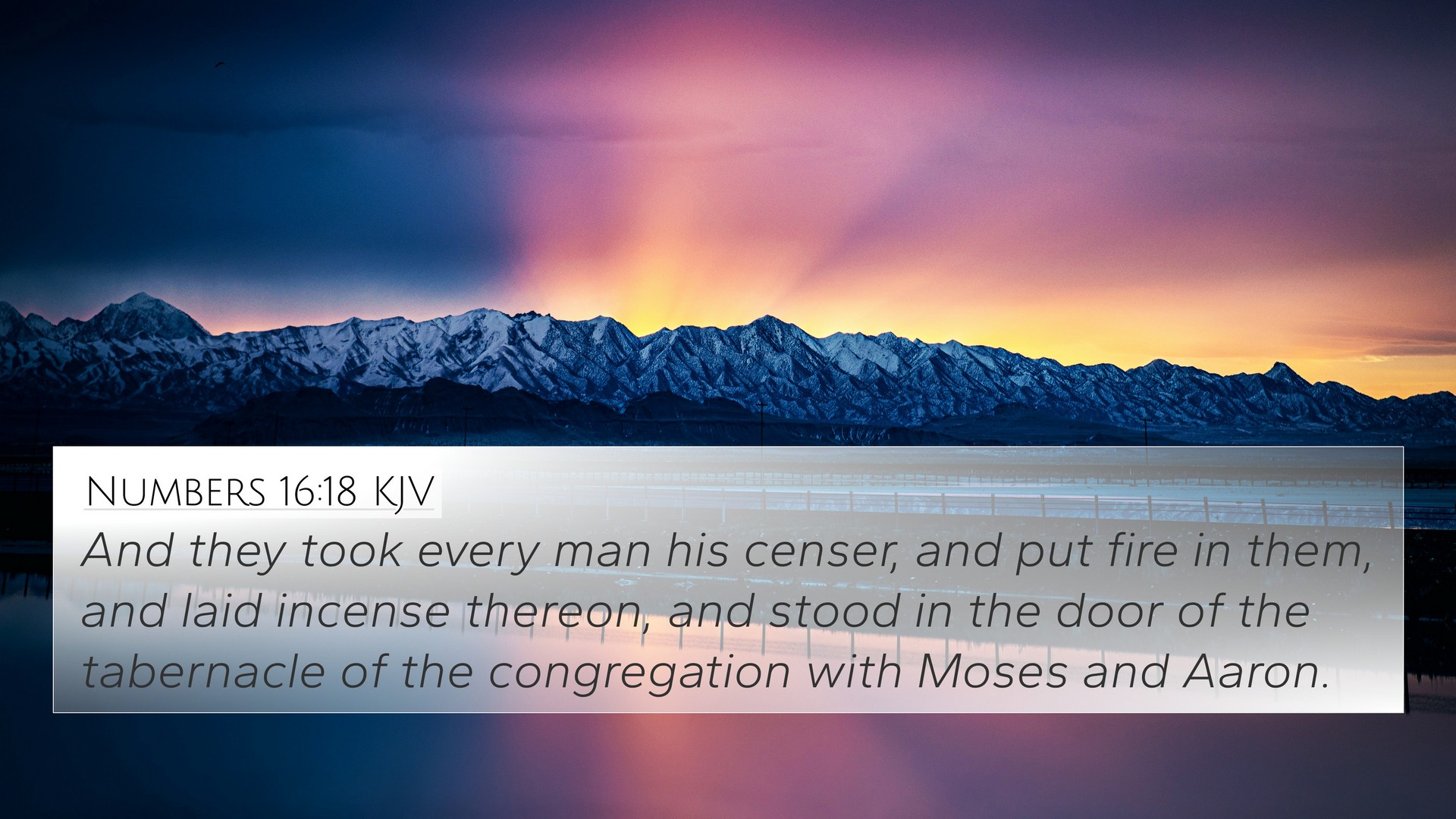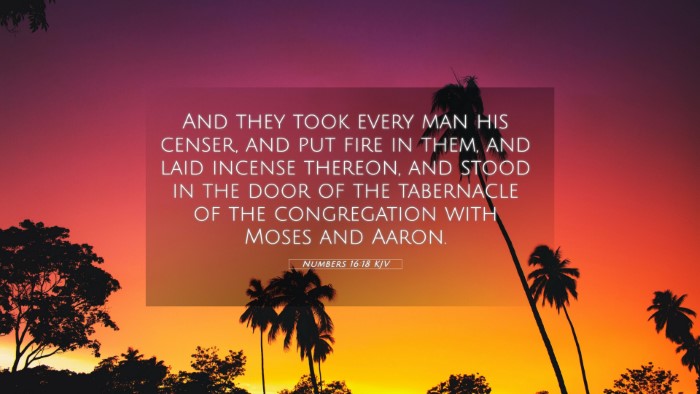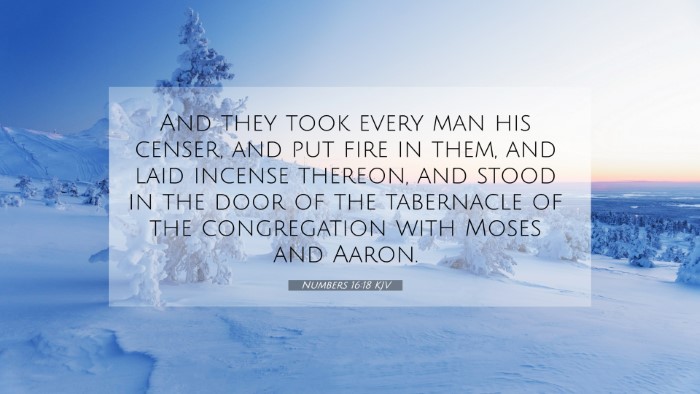Understanding Numbers 16:18
The verse Numbers 16:18 captures a significant moment in the history of Israel as it relates to the rebellion of Korah. This rebellion serves as a backdrop for understanding obedience, authority, and the consequences of dissent against God's appointed leaders.
Verse Text
Numbers 16:18 (KJV) - "And they took every man his censer, and put fire in them, and laid incense thereon, and stood in the door of the tabernacle of the congregation with Moses and Aaron."
Verse Analysis
The action taken by Korah and his followers in this verse is both symbolic and significant. By offering incense in the presence of the tabernacle, they were challenging the God-ordained priesthood and asserting their own self-claimed authority.
Context and Background
In this passage, the Israelites are witnessing a conflict between the divinely appointed leadership of Moses and Aaron and those who seek to undermine their authority. The censer represents a tool of worship and a means of approaching God, which Korah and his cohorts misused.
Commentary Insights
-
Matthew Henry:
Henry emphasizes the folly of Korah's rebellion, noting that the incense presented by Korah was not just a physical act but a spiritual affront. This highlights the seriousness of approaching God in ways He has not commanded.
-
Albert Barnes:
Barnes points out that the act of burning incense is intrinsically linked to the role of the priest. By trying to offer incense, Korah attempted to usurp a privilege that was dedicated solely to Aaron and his descendants, resulting in divine disfavor.
-
Adam Clarke:
Clarke discusses the symbolism of the censer as a representation of God's judgment. The act of offering incense is portrayed as an attempt to gain God's favor by unauthorized individuals, which leads to the assertion that true worship requires divine appointment.
Significance of the Censer
The censer in this context illustrates the intersection of worship, authority, and divine command. It serves as an important reminder of how worship should align with God's directives rather than individual interpretations or desires.
Thematic Connections
This verse connects thematically with several other scripture passages that deal with authority, rebellion, and the role of the priesthood:
- Leviticus 10:1-2 - This passage discusses the consequences faced by Nadab and Abihu for offering unauthorized fire before the Lord.
- Exodus 30:9 - Here, God explicitly instructs not to offer strange incense, emphasizing the importance of divine guidelines for worship.
- Hebrews 5:4 - This New Testament verse highlights that no one should take this honor upon himself, but he who is called by God, much like Aaron.
- Jude 1:11 - This verse calls out Korah's rebellion as an example of those who reject authority and face judgment from God.
- Romans 13:1 - Paul emphasizes the necessity of submitting to governing authorities as instituted by God, drawing a parallel to obedience to God’s chosen leaders.
- 1 Samuel 15:23 - The rebellion of Saul against God's command serves as a reflection of the spirit of Korah’s actions: rebellion is as the sin of witchcraft.
- Proverbs 16:18 - This verse serves as a caution: pride goes before destruction, relating directly to the pride exhibited by Korah and his followers.
Application of the Verse
In modern application, believers are called to respect God’s established authority structures within the Church and recognize that rebellion against them can lead to severe consequences, both spiritually and communally.
Cross-Referencing Biblical Texts
Utilizing cross-referencing tools available in many Bible concordances can enhance the understanding of this verse. Recognizing connections between Old and New Testament teachings allows for a deeper grasp of the faith's historical and spiritual foundations.
Tools for Bible Cross-Referencing
- Bible concordance
- Bible cross-reference guide
- (Cross-reference Bible study materials
Conclusion
Numbers 16:18 serves as a profound reminder of the importance of obeying God’s appointed leaders and approaching Him according to His established guidelines. The inter-Biblical dialogue surrounding this passage provides insight into the nature of divine authority and the consequences of rejecting that authority.
Understanding the cross-references and connections between biblical passages enriches the interpretative experience of Scripture, guiding believers in their faith journey.


